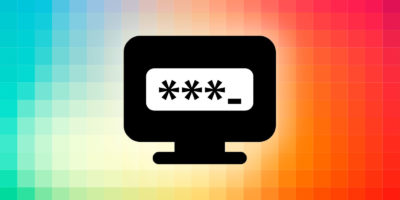online behavior

Bad cybersecurity behaviors plaguing the remote workforce
A report from Tessian reveals that 56% of IT leaders believe their employees have picked up bad cybersecurity behaviors since working from home. As organizations make plans …

DDoS attacks increase 341% amid pandemic
During the pandemic, cyber attackers targeted industries providing connectivity, services and entertainment to populations forced to shelter-in-place, resulting in a 341% …

Consumer views and behaviors on creating and using passwords
17% of consumers would rather watch paint dry than create a unique password for every service they use, an Onfido survey reveals. The study polled more than 4,000 consumers in …

Total combined fraud losses climbed to $56 billion in 2020
While total combined fraud losses climbed to $56 billion in 2020, identity fraud scams accounted for $43 billion of that cost. Traditional identity fraud losses totaled $13 …

Consumers aware of security concerns, but not doing much to change password habits
The recent remote work trend caused by the pandemic has increased password security risks of both companies and individuals. Despite this fact, Americans continue to put …

How can we protect ourselves against fake news and manipulation?
The internet has revolutionized our lives – whether in terms of working, finding information or entertainment, connecting with others, or shopping. The online world has …

Consumers not protecting data online despite having privacy concerns
Startpage announced results of its survey exploring the attitudes of Americans towards protecting their own privacy online. The results found a gap between the high levels of …

93% of workers overshare online, causing security risks
Tessian reveals just how much, and how often, people divulge about their lives online and how attackers take advantage of it. With insights from both professionals and …

The first step in protecting ourselves is realizing that there’s a lot we can do to stay safe online
While the shift to a digital-first life was brought on by the global pandemic, U.S. consumers plan to keep it up – with online banking (61%), social engagements (56%), and …

Users can be manipulated to share private information online
Online users are more likely to reveal private information based on how website forms are structured to elicit data, Ben-Gurion University of the Negev (BGU) researchers have …

Digital thought clones manipulate real-time online behavior
In The Social Dilemma, the Netflix documentary that has been in the news recently for its radical revelations, former executives at major technology companies like Facebook, …

Consumer behaviors and cyber risks of holiday shopping in 2020
While consumers are aware of increased risks and scams via the internet, they still plan to do more shopping online – and earlier – this holiday season, McAfee reveals. …
Featured news
Resources
Don't miss
- NTLM relay attacks are back from the dead
- Africa’s cybersecurity crisis and the push to mobilizing communities to safeguard a digital future
- Google open-sources privacy tech for age verification
- You can’t trust AI chatbots not to serve you phishing pages, malicious downloads, or bad code
- Cisco fixes maximum-severity flaw in enterprise unified comms platform (CVE-2025-20309)